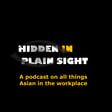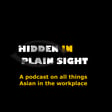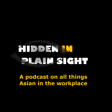
Real talk with Leaders in the Field: Asians in IO Co-founders
This week, we spoke to co-founders of Asians in IO Psychology, Alex Hsu and Dr. Shannon Cheng. Alex is a senior people analysts manager for a global people analytics team. Shannon is a scholar and practitioner whose research focuses on DEI in the workplace from a multilevel perspective, looking at interactions between the individual, interpersonal, organizational, and society as a whole.
Asians in IO Psychology’s mission is to empower Asians within the field of IO psychology. Their aim is to create greater awareness of the multifaceted Asian experience, and partner with allies to drive positive change in IO Psychology. For this interview, we wanted to better understand the people behind this group’s mission. Alex and Shannon talked about their personal experiences and their own identity as part of their drive to create this group. Our conversation then shifts to systemic vs. individual challenges, mentorship and community building, as well as biracial identity, leadership and representation — check out the podcast for all the details!
Check out Asians in IO Psychology!
https://www.linkedin.com/groups/9058893/


